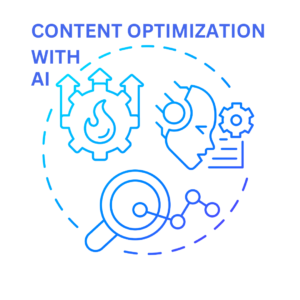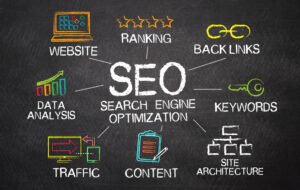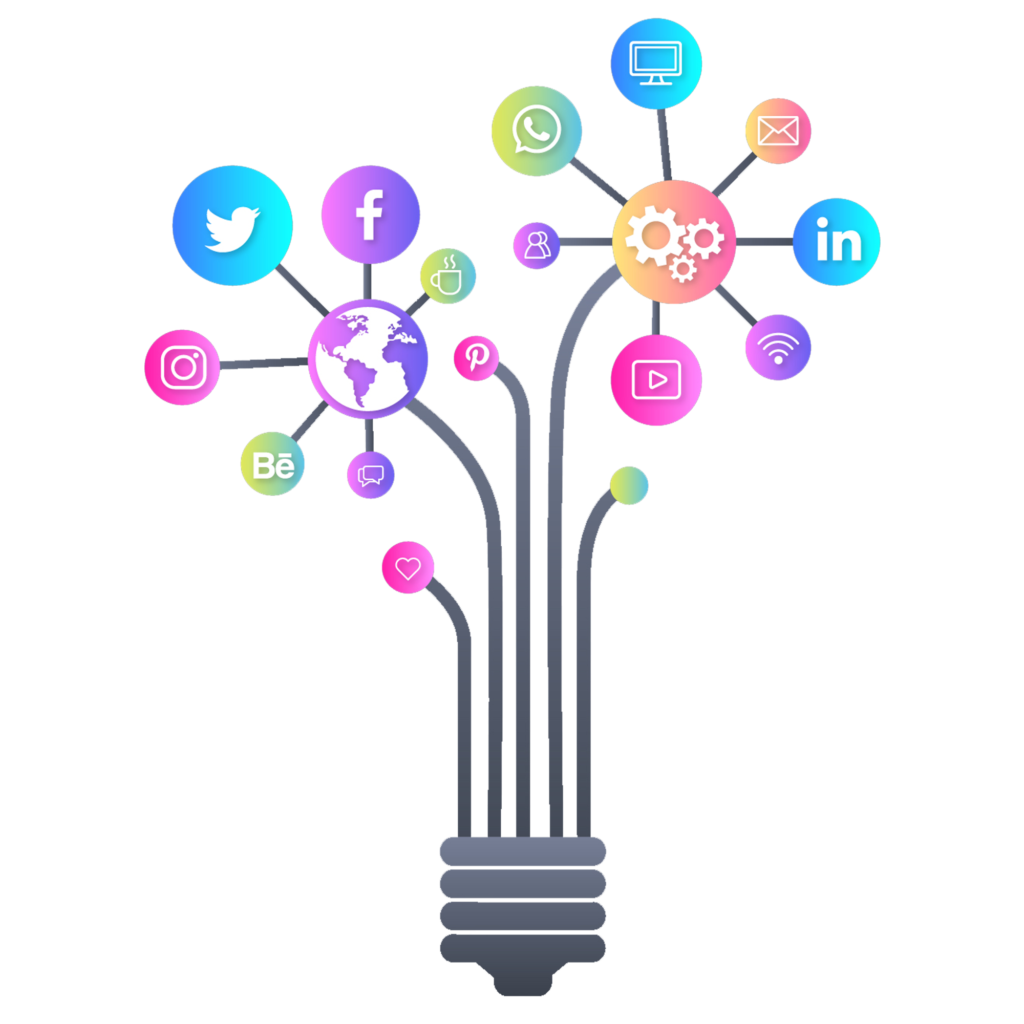How AI is Transforming SEO in 2025
Search engine optimization (SEO) has always been a dynamic field, but AI-powered algorithms are now revolutionizing the game like never before. As search engines evolve, they rely more on Natural Language Processing (NLP) and machine learning to understand user behavior and intent.
In 2025, businesses and content creators must adapt to these advancements or risk falling behind.
From AI-driven keyword research to voice search optimization, artificial intelligence is redefining how we approach SEO. This article explores how AI is shaping the future of SEO, helping websites rank higher while delivering more relevant and engaging content to users.
AI-Powered Algorithms and User Intent Analysis
Modern search engines no longer rely solely on keyword density; instead, they use AI-powered algorithms to analyze search queries in depth. These advanced systems incorporate user intent analysis to determine what searchers truly need.
For example, a query like “best running shoes” could mean different things: some users may want product reviews, while others are looking for affordable options. AI helps search engines understand these nuances, ensuring users receive results that align with their intent.
How AI is Transforming SEO in 2025
• Contextual understanding: AI examines past search behavior, location, and browsing history to refine search results.
• Personalization: Users see content that matches their preferences and past interactions.
• Semantic SEO: AI understands related terms and synonyms, improving search accuracy.
By leveraging these capabilities, AI ensures search results are more precise and valuable to users.

The Rise of AI-Driven Keyword Research
Traditional keyword research tools provided data based on search volume and competition. In 2025, AI-driven keyword research goes beyond these metrics by predicting future trends and analyzing predictive analytics to suggest high-performing keywords before they become competitive.
Benefits of AI in Keyword Research
• Predicting emerging trends before they gain traction.
• Understanding keyword relationships using NLP models.
• Identifying long-tail keywords based on conversational search patterns.
Statistical Insight: Websites leveraging AI for content optimization and SEO strategy have seen a 30% increase in organic search traffic, compared to those relying on traditional methods.
SEO professionals now use AI tools like Clearscope, Surfer SEO, and Semrush to gain deep insights into keyword intent and search behavior, allowing for more effective content strategies.
Content Optimization with AI
Quality content is still the foundation of SEO, but AI has made content optimization more efficient and precise. By analyzing top-ranking pages, AI can suggest improvements that align with search engine expectations.
AI’s Role in Content Optimization
• Automated content suggestions: AI tools recommend headings, FAQs, and related topics to include in an article.
• Readability and engagement insights: AI evaluates sentence structure, paragraph length, and tone for better user experience.
• On-page SEO enhancements: AI ensures keyword placement, internal linking, and metadata are optimized.

By utilizing AI-driven content tools, businesses can create high-quality, well-structured content that resonates with both users and search engines.
AI in Technical SEO and Image Optimization
Beyond content, AI is reshaping technical SEO and image optimization, making websites more accessible and search-friendly.
AI in Technical SEO
• Site audits: AI can identify crawl errors, broken links, and indexing issues faster than manual audits.
• Automated schema markup: AI ensures structured data is correctly implemented for rich results.
• Core Web Vitals improvements: AI-driven tools suggest enhancements for site speed, interactivity, and stability.
AI in Image Optimization
• Automated alt text generation: AI suggests accurate, keyword-rich alt text for images.
• Enhanced image recognition: AI improves image search ranking through metadata optimization.
• Compression and load speed improvements: AI tools optimize images without sacrificing quality, improving page speed.
Statistical Insight: AI-powered tools in SEO have surged by 35% year-over-year, with businesses increasingly integrating AI for content optimization, keyword research, and technical SEO improvements.
The Impact of Voice and Visual Search Optimization
As technology advances, voice search optimization and visual search optimization are becoming essential elements of SEO. With devices like Alexa, Google Assistant, and Siri growing in popularity, optimizing for voice search is no longer optional.
How AI is Transforming SEO in 2025 : Voice Search Optimization
• Conversational content: Writing in a natural, question-and-answer format improves voice search rankings.
• Featured snippet targeting: AI prioritizes concise answers that fit voice search queries.
• Local SEO enhancements: Voice searches often have local intent, making local SEO strategies crucial.
Statistical Insight: By 2025, over 50% of all online searches are expected to be conducted through voice search, highlighting the growing importance of AI-driven voice search optimization strategies.
Similarly, visual search optimization is changing how users find information. Platforms like Google Lens and Pinterest Visual Search allow users to search using images instead of text. AI-driven image recognition and metadata optimization ensure that brands appear in these searches.
Generative Engine Optimization (GEO) and the Future of SEO
One of the biggest breakthroughs in AI and SEO is Generative Engine Optimization (GEO), a concept that focuses on optimizing content for AI-generated search results. With tools like ChatGPT and Google’s AI-driven search features, users often get direct answers instead of a list of links.
How GEO is Changing SEO: How AI is Transforming SEO in 2025
• AI-generated responses: AI-powered search results prioritize well-structured, concise content.
• Conversational search adaptation: Websites must create content that AI models can easily interpret and summarize.
• Content authority building: AI rewards authoritative, fact-checked sources with higher visibility.
Statistical Insight: AI-generated search results from platforms like Google’s AI-powered search engines are predicted to achieve 90% accuracy in delivering contextually relevant and intent-based answers.
Businesses need to shift their focus from traditional rankings to ensuring their content is AI-friendly and aligns with the future of search.

Conclusion: How AI is Transforming SEO in 2025
AI is transforming SEO in ways we couldn’t have imagined just a few years ago. From AI-powered algorithms that enhance user intent analysis to predictive analytics that improve AI-driven keyword research, artificial intelligence is making search engines smarter and more user-centric.
To stay ahead in 2025, businesses must embrace AI-driven content optimization, voice search optimization, and visual search optimization while preparing for the rise of Generative Engine Optimization (GEO). Additionally, leveraging AI for technical SEO and image optimization can further enhance search visibility.
Statistical Insight: With the rise of AI-generated snippets, click-through rates on traditional organic search results have dropped by 25%, as users increasingly get direct answers without clicking external links.
By incorporating AI-powered strategies, businesses can create content that ranks well and provides real value to users. As AI continues to evolve, one thing is clear: those who adapt will thrive in the ever-changing world of search engine optimization. Are you ready for the AI-powered future of SEO?
FAQs: How AI is Transforming SEO in 2025
How does AI improve keyword research?
AI analyzes vast datasets to identify emerging keywords and predict their performance, allowing marketers to target terms with high potential before they become competitive.
Is AI replacing traditional SEO practices?
No, AI enhances traditional SEO by providing advanced tools and insights, but foundational practices like quality content creation and ethical link-building remain essential.
How can small businesses leverage AI in their SEO strategy?
Small businesses can utilize AI-powered SEO tools for tasks like content optimization, keyword research, and technical site audits to improve their online visibility efficiently.
Connect us on Facebook

